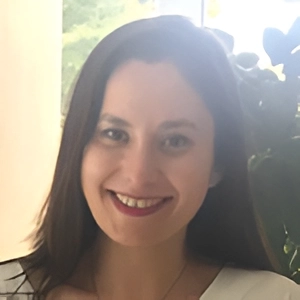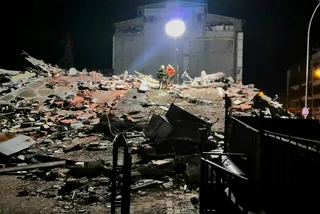On Feb. 6, a rare sequence of earthquakes struck southeastern Türkiye and northern Syria. After the initial earthquake of 7.8 magnitude, a tremor of 7.5 magnitude followed nine hours later, exacerbating the destruction, and more than 7,500 aftershocks according to the World Bank, making this the most destructive natural disaster in the region in more than 80 years.
The death toll caused by the major two earthquakes spirals past 50,000 deaths. National and international concerns continue to multiply as two new earthquakes hit Turkish provinces Hatay and Nigde last week, with magnitudes 6.3 and 5.3 respectively.
While more than 10 million locals have been directly affected by the 2023 Kahramanmaraş earthquake, Turkish communities abroad are also sharing the grief and sorrow of the damage and fatalities. Additionally, they are collaborating to help earthquake victims in any way possible.
The Turkish community in the Czech Republic acted promptly to send help to those in need. Their initiatives included collections for emergency relief supplies at the Turkish embassy or at Turkish-owned businesses, charity collections, commemorative events, and support groups. Their acts of solidarity are meant to help people cope with the situation, despite the constant worry over what's happening now, and the uncertain future of the region and its people.
Voices from the Turkish expat community
- ''My heart is aching. We have been trying to help in any way we can. We feel the devastation from miles away, and our hands are tied here,'' says Ş. Ö., 30, chemical engineer.
- ''It took me a long while to digest the scale of this disaster. I did not lose any of my friends or relatives in this earthquake, but that doesn't matter. I still have been 'glued' to the news. I still feel very hurt by this. It was impossible to carry on with my life here and go to work, especially in the first week. On the other hand, it was heartwarming to see all the international help flooding to the victims. Many thanks to the Czech Republic and all the countries that sent help, from the bottom of my heart,'' said O.K., 25, social worker.
- ''I lost a friend in the earthquake. They reached her dead body a week after the earthquake, and I believe that she is already buried. It is hard to get informed about what's happening there real-time. This is a total disaster… I'm sure that all Turks who live in Europe feel the same. I feel guilty for sleeping in a warm bed, having a warm meal. We do help in any way we can, but it never feels enough,'' says E.K., 28, IT support specialist.
- ''I lost relatives from my mother's side. I wanted to go there for their funerals and to help, but people are being buried fast, and most bodies are not even in recognizable conditions. I would have no idea how to find them… At the moment, resources are limited. Going there would mean that I would have to use the help that's sent to the victims, as volunteers also need food and shelter. NGOs say they need resources, not more people on the ground. Please continue sending donations. These people will need help for many months and maybe years. They lost everything,'' said M.Y., 21, student.
- ''I'm a survivor of the 1999 earthquake, and I very much relate to how our people are suffering now, no matter if they lost people to this earthquake or not. No matter if they are in Türkiye now, or elsewhere. If you have Turkish colleagues or friends around you, make sure that you check with them regularly and share your moral support. It will take a long time for them to get through this,'' says S.Ş., 37, engineer.
A region prone to earthquakes
Türkiye is not foreign to earthquakes, as fault lines go through 42 percent of the surface area of the country. Notoriously, a 7.6 magnitude earthquake in 1999 killed more than 18,000 people in Izmit, a city near Istanbul. Most recently, the 2020 Elazığ earthquake with a 6.7 magnitude took 41 lives; ten months later, a 7 magnitude earthquake in the Aegean sea earthquake killed 117 people in Izmir, and 19 in the Greek island of Samos.
In order to help Prague-based Turks cope with the detrimental psychological impacts of the earthquake, a post-disaster support group will be organized by Prague Integration, a local NGO providing mental health services. The sessions will be led by Pınar Kaya Kurtman, a Prague-based Turkish psychologist. The aim of the group is to help create a safe space for people who struggle with the negative impacts of the earthquake, says Kurtman.
"As a psychologist working in the field of mental health, I can say that in such large-scale disasters, feelings of helplessness, sadness, and anger are commonly seen in those affected, and symptoms such as difficulty adhering to daily routines, difficulty concentrating can arise," Kurtman says.
"In such situations, as someone who understands the benefits of solidarity and mutual aid in healing the wounds, I have planned to support aid activities in Türkiye while also working with Prague Integration to create a safe environment where we can support and stand in solidarity," she adds.
resources
- Prague Integration holds group Turkish-language support sessions every Thursday for 90 minutes, from March 9 to 30. Those who are interested can sign up by email at contact@pragueintegration.cz.
- Additionally, regular post-disaster online meditation sessions will be organized by Aynur Erdem, a Brno-based meditation specialist. Sessions begin on March 1, and will take place every Wednesday and Saturday at 7:30 p.m. CET. Those who are interested can sign up by email at aynur.erdem@gmail.com.
- The Ahbap Association is raising money for shelter, food, and medical supplies to those in need.
- The Turkish Ministry of Interior's Disaster and Emergency Management Presidency launched an Earthquake Humanitarian Aid Campaign with bank accounts for donations.












 Reading time: 4 minutes
Reading time: 4 minutes 



















